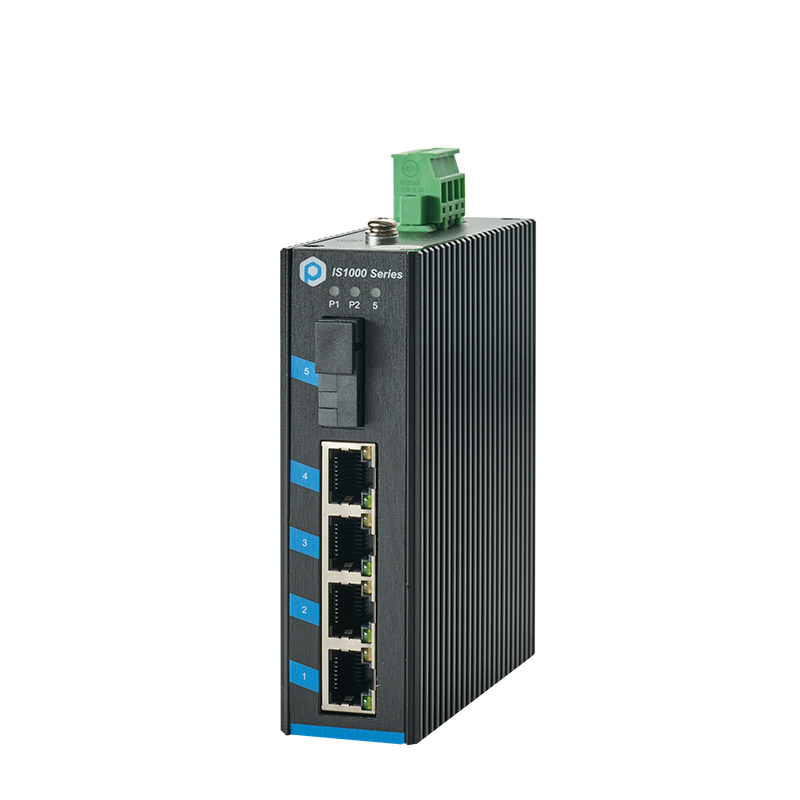The Industrial Switch is designed to connect devices in adverse weather conditions and environments. It usually features a wide operating temperature of -40°C to 75°C, a protection rating of no less than IP30, and supports standard and proprietary ring redundancy protocols. They are built to exceed the specifications of regular switches with industrial safety certification and approval for hazardous locations, making them ideal for use at sites with harsh environmental conditions.
Industrial switch is also known as Industrial Ethernet Switch, which is an Ethernet switch device used in industrial control. Due to the adopted network standard, it is open, widely used, and inexpensive. It uses a transparent and unified TCP/IP protocol. The network has become the main communication standard in the field of industrial control.
Industrial switches are widely used in industrial applications, mainly in coal mine safety, rail transit, factory automation, water treatment systems, and urban security, etc.

The difference between industrial switches and commercial switches
The difference between an industrial Ethernet switch and a commercial switch is mainly reflected in the function and performance.
The difference in function mainly refers to the fact that industrial Ethernet switches are functionally closer to industrial network communication, such as interconnection with various fieldbuses, redundancy of devices, and real-time of devices;
The difference in performance is mainly reflected in the adaptation to the external environmental parameters. In addition to many harsh environments such as coal mines and ships, the industrial environment has special requirements for EMI (electromagnetic compatibility), temperature, humidity, and dust. Among them, the temperature has the most extensive influence on industrial network equipment.
Components: Industrial Ethernet switch components have higher requirements for selection and should be better adapted to the needs of industrial production sites.
Mechanical environment: Industrial Ethernet switches can better adapt to harsh mechanical environments, including vibration, shock, corrosion, dust, and water.
Climate: Industrial Ethernet switches are better suited to poorer climates, including temperature and humidity.
Electromagnetic environment: Industrial Ethernet switches have strong anti-electromagnetic interference capabilities.
Operating voltage: Industrial Ethernet switches have a wide operating voltage range, and commercial switches require higher voltages.
Power supply design: Commercial switches are basically single-supply, while industrial switch power supplies are generally dual-power backups.
Installation method: Industrial Ethernet switches can be installed in DIN rails and racks. Commercial switches are generally rack and desktop.
Cooling method: Industrial Ethernet switches generally use a fanless enclosure for heat dissipation, while commercial switches are fan-distributed.
Industrial Ethernet switches are particular about their product design and selection of components. They are designed for the needs of industrial field and can still work normally under severe mechanical, climatic, electromagnetic and other environments. Therefore, they can be widely used in industrial production scenarios with severe conditions.
Contact: sales
Phone: 18688787693
E-mail: sales@hsindustrialswitch.com
Add: Room 608, Building B,GaoXinQi TEC Park,Baoan District, ShenZhen,China